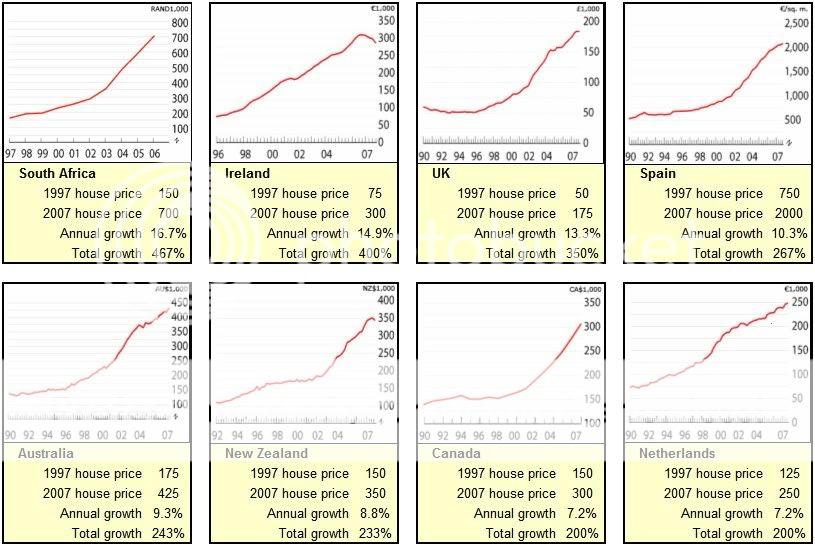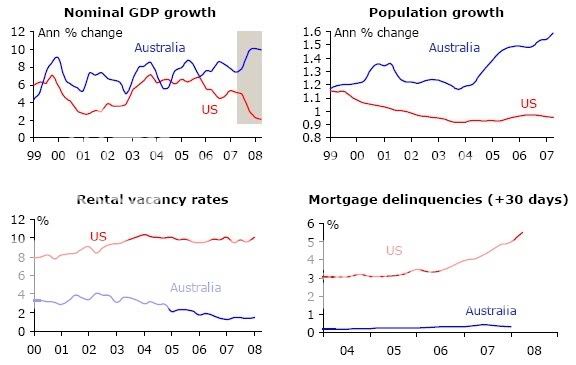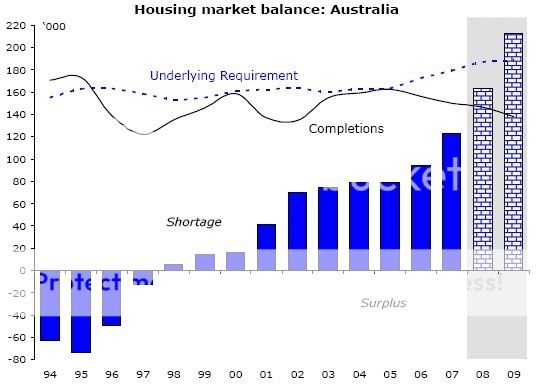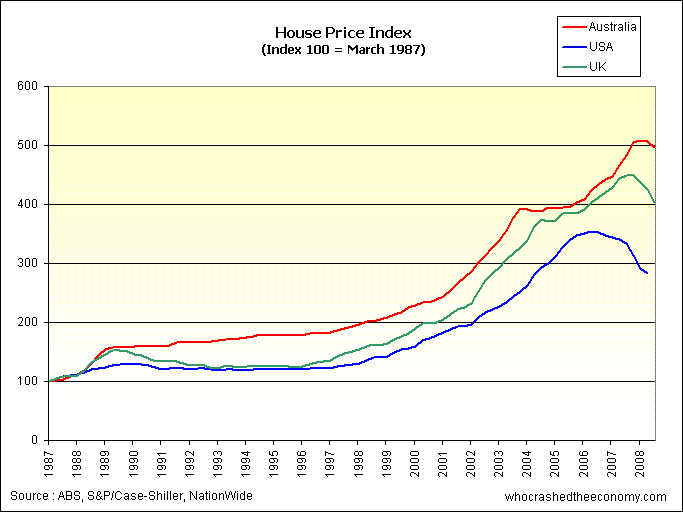I'll apologise for this post before I even start it, But that statement would be unworthy of a high school kid!Not everyone has shares. Noone really *needs* shares, but virtually everyone needs property - whether they rent it, own it or owe the bank for it.
Are you seriously suggesting that we absolutely NEED expensive McMansions? Mankind has lived on Earth two millennia since the approximate start of what we might call civilisation. This "luxury for the masses" that you take for granted has had barely 50 years life and is still only available to a privileged few (us). In the history of mankind, I would imagine that the percentage of souls on earth who have lived "in style" would be less than 1% with many zeros before the first significant figure. Mankind not only survived, it progressed. So, why do we "need" the type of house you rent out?
Now I have no more wish to live in a cave than you do (consuming Chinese still do though!) but what sets us apart? It is our thriving economy. Please explain how you can have a thriving economy without some sort of market where entrepreneurs come together to pool their resources to undertake projects which are beyond any individual? "Economy of scale" is an essential ingredient of our standard of living. Why would I wish to chip in some money if I couldn't resell my stake at a time of my choosing? How do I resell without "a market"? You may not be an entrepreneur but be thankful others are. In the same way you probably aren't a soldier but be thankful some of your oldies were. I did a little bit in uniform and I try to be an entrepreneur. Don't put $h!t on us.
As individuals neither of us must own shares, but someone must. As individuals neither of us needs to own property, but someone must. As individuals neither of us must defend the nation, but someone must. Now tell me again, why are share markets no more essential than casinos?
Throw your APIs in the bin and read something real. The web allows you access to a broad range of opinions at no cost. Take advantage of the benefits the BBs have given you.







